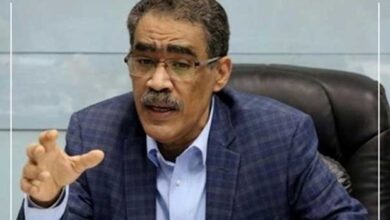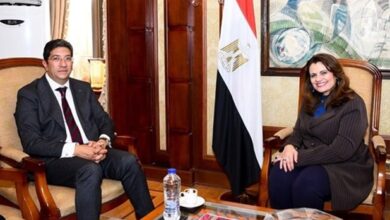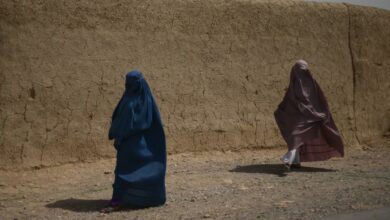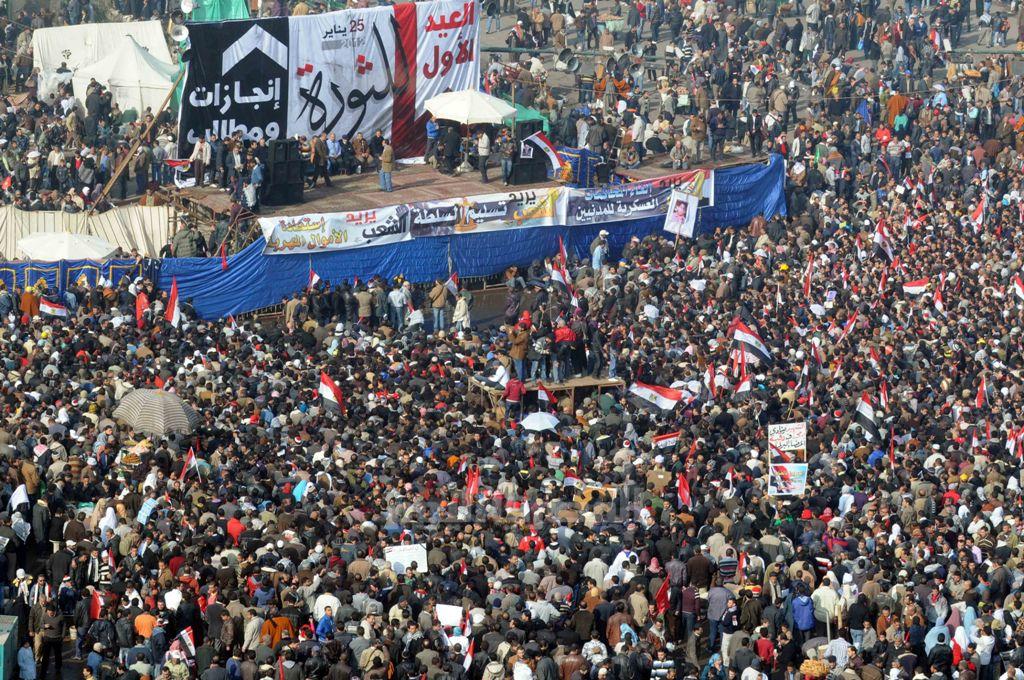“The Muslim Brotherhood is a legal association registered under number 644 for the year 2013,” the main headline on the group’s official website Ikhwanonline.com declared on 20 March, only hours after the Supreme Administrative Court’s Board of Commissioners said the group was illegal and should be dissolved.
The court adjourned to 23 April the ruling on the challenge filed by Brotherhood lawyers in 1992 after the Cairo Administrative Court ruled to reject a similar challenge filed by former Brotherhood Supreme Guide Omar al-Telmesany in 1977.
Telmesany had sought to challenge the 1954 Revolution Command Council decision to dissolve the group, despite the fact that the 1956 Constitution protected any council decision, even in the event that the Constitution expired.
In an attempt to preempt the ruling expected Tuesday, the Insurance and Social Affairs Ministry and Brotherhood announced the group was registered and had legalized its status in accordance with Law 84/2002, which governs the activities of civil society entities operating in Egypt.
The timing of the registration raised the ire of many who have been calling for the Brotherhood — which is now in a position of power in both the executive and legislative branches of the state — to reveal more details about its organization. The looming question is whether legalizing the group is merely a gesture — or a true commitment to stepping out of its long-held opacity.
“Suddenly, after the Board of Commissioners’ decision, it was announced that the group had been registered and is now legal. For an NGO to get registered, the matter would normally take up to 60 days, according to the law, or at least one month,” says Mohamed al-Ansary, a lawyer with the Cairo Institute for Human Rights Studies, says. “Taking the step to register means that they feared the consequences of a court ruling would invalidate the group. A ruling as such would lead state bodies to confiscate all of the group’s headquarters and possessions in all governorates.”
Since its establishment in 1928, the group organized political and religious activities based around spreading its views for a conservative society and contesting the ruling regimes, particularly during elections. The group has headquarters in all 27 governorates, but never revealed its funding sources or how many members it officially boasts.
However, legalizing its status would give executive authorities, represented in the Insurance and Social Affairs Ministry, the right to review the group’s funding sources and oblige it to reveal the identities of its donors, just like the other 13,000 or so NGOs operating in Egypt.
As soon as it was registered, the group became obliged to open a bank account at a local bank to deposit the money it receives. It is also obliged to present a detailed annual financial report to show its sources of income and expenditures.
The law also gives the Insurance and Social Affairs Ministry the right to inspect the group’s headquarters anytime to ensure its activities abide by the law. If an NGO wishes to obtain foreign funding, it must first get the social affairs minister’s approval.
“This is a suspicious start that raises questions on whether the legalization will only be nominal, and the group will not reveal all of its sources of funding and its organizational structure,” says Ansary. “It raises concerns about whether the group will be registered in public but continue to shroud its actual structure in secret. Besides, the Brotherhood is now at the helm of the executive authority, which means that the government’s supervision may be subject to [political] pressure.”
Haitham Abu Khalil, a former Brotherhood leader, agrees. And the Brotherhood funding is a case in point.
“The Brotherhood has four sources of funding, the first and biggest of which is the members’ monthly fees. The second source is donations by Brotherhood members in other countries. The third is exceptional donations that members have to pay before [internal] elections. The fourth is investments in the different fields of business where a part of the previously mentioned funds is invested in income generating projects,” he explains.
Abu Khalil says the way membership dues are gathered and the different sources of funding are not transparent enough, and only some group leaders know how the money is used. Hence, he concludes, its legal status is simply window dressing.
“From now on, we have three bodies for the Muslim Brotherhood: the Freedom and Justice Party, the registered Muslim Brotherhood and the actual Muslim Brotherhood, which continues to work secretly and plans everything to manage the country,” Abu Khalil says. “The registration only came in response to calls by political powers for the group to legalize its status. But I am confident that this will only be a nominal step and the sources of funding will not be revealed.”
But Mokhtar al-Ashry, the group’s lawyer and head of the FJP Freedoms Committee, says the group’s only source of funding is members’ fees, which stand at 7 percent of a member’s monthly income. It will remain the only source of funding and will be registered in the association’s books and its bank accounts, he says.
He adds that the group is registered as a central NGO because it has offices in all governorates, in accordance with the law.
Funding aside, the scope of the group’s activities as an NGO remains questionable. The law prohibits NGOs from exercising partisan or syndicate activities, and obliges them to notify the Insurance and Social Affairs Ministry of any activities or conferences they plan ahead.
“The real problem now lies with the nature of activities undertaken by the group, because it organizes camps and conferences, with the real goal being political polarization,” says Abu Khalil.
Meanwhile, Ashry says the group enjoys transparency and will abide by the law.
“The law is clear, and when it banned political activity, it meant that NGOs could not field candidates in elections, support or fund one,” says Ashry. “But the group’s activity, which is serving society, helping the poor, engaging in religious activities and participating in political protests, will remain as it is because it is meant to serve the public good, and this is the logic of civil activity.”
The group’s membership structure is another area of contention.
The law obliges NGOs to declare all of their bodies and functions, as well as how their members are chosen and removed. It also obliges them to announce the conditions for membership and the rights and duties of members, such as their right to view the NGO’s documents and attend its general assembly and vote.
The Brotherhood’s 85-year-old structure is composed of a compact system of families that elect neighborhood sections, which then select a council for each governorate. At the end, councils gather and become members of the Guidance Bureau, the highest authority responsible for formulating the group’s policies.
The group’s supreme guide and his deputies are elected from among the ranks of the Guidance Bureau, taking into account that seniority must be observed when choosing the group’s leader.
But the new NGO will include former Brotherhood Supreme Guide Mahdi Akef as association head, while current Supreme Guide Mohamed Badie will take on the position of director general. It remains unclear why this arrangement was made.
Deputy supreme guides — the powerful Khairat al-Shater, Mahmoud Ezzat and Rashad al-Bayoumy — will hold on to their titles until the next internal elections are scheduled.
“It is not customary for the group to hold a general assembly or to justify the addition of a new member or the dismissal of another. Even if that happens, it will only be nominal,” Abu Khalil says. “A general assembly might convene and vote on a certain matter only to create the illusion that everything is legal.”
He says most reformist Brotherhood members left the group after the 25 January revolution and that “young members are unaware of the reality of the group.”
“They only implement the group’s orders obediently,” says Abu Khalil. “This means that votes and the participation of members in decision making will never defy the wishes of the leadership.”
Moreover, the new Islamist-backed NGOs law in the works is favorable to the Brotherhood because it doesn’t cover internal structure issues.
Ashry says the group will not change its internal structure until the fate of the new NGOs law — now in the hands of the Shura Council, which has a Brotherhood majority — is decided.
“The current law interferes in the work of NGOs and the right of each to run their affairs. We are waiting for the new law, which was submitted by the government and is being discussed by the Shura Council,” Ashry adds.
He says NGOs reject the draft law because it sets conditions for receiving foreign funds, while the Brotherhood welcomes this law because it does not receive foreign funds, unlike other NGOs. He also says the group rejects the idea of setting conditions on the internal structuring of NGOs.
But Abu Khalil calls their position one of a master of spin. “They reject the current law because it interferes with the internal structuring, and welcome the new one because it does not do that,” he says. “This is the Brotherhood.”
This piece was originally published in Egypt Independent's weekly print edition.




